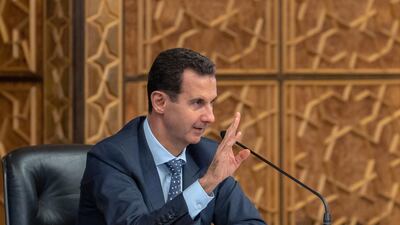It is now two months since Russia and Turkey signed the Memorandum on Stabilisation of the Situation in the Idlib De-escalation Area. This inelegantly titled document brought hope to the three million civilians trapped in the rebel-held Syrian enclave that a catastrophic final assault by the Assad regime might be avoided. The unleashing of an artillery barrage at the weekend forever extinguished that hope for one mother and her child, the latest of a reported 100 or more victims of regular breaches of the ceasefire zone by the Syrian army in the past month.
Notably absent from the ceasefire document signed in Sochi was the hand of any representative of the Syrian regime, which since September has given a fine impression of a hungry wolf, straining at the leash placed around its neck by its Russian master. The indiscriminate shelling of the demilitarised zone suggests President Bashar Al Assad, emboldened by the scent of impending victory, is impatient to shake off all restraint and take back control of this last corner of the country, no matter the cost to its inhabitants. Not for the first time, Assad is demonstrating that he owes allegiance to no one but himself – not to his innocent citizens, cowering in fear before his army, not to the sanctity of international agreements, not even to Russia.
If any hope for an end to this bitter conflict is to be maintained, it is vital that agreements such as that signed by Russia and Turkey and submitted to the United Nations Security Council on September 18 be respected. In that document Moscow vowed to ensure that attacks on Idlib would be avoided. In defying his master’s will, has Mr Al Assad already forgotten that his regime continues to exist, thanks only to Russia’s intercession? The regime seeks to justify this latest infringement of the ceasefire zone as a response to an incursion by terrorists towards army posts set up to protect civilians in the area. The killing of those same civilians in the pursuit of this mission is beyond irony, but the welfare of Syria’s citizens has never been Assad’s priority.
The UK-based Syrian Observatory for Human Rights reports that, since October, hundreds of refugees who have responded to repeated government exhortations to return home from neighbouring countries have been arrested. These events hint darkly at a future defined by the excesses of a triumphant Mr Al Assad, and an intensification of the brutality and human rights abuses that have characterised the past seven years. The state news agency is already proclaiming that "normal life and stability" have returned to most of Syria. For those trapped in Idlib, "normal" is a word loaded with sinister meaning.

